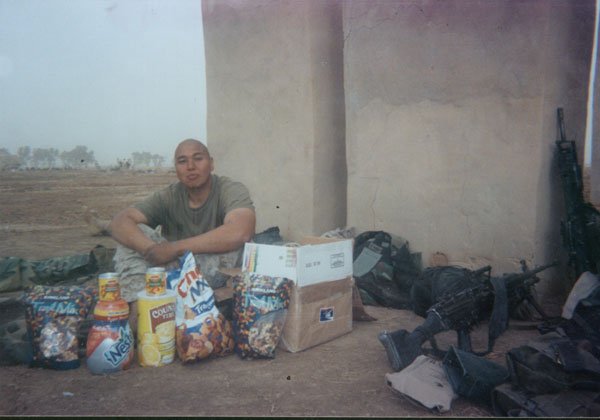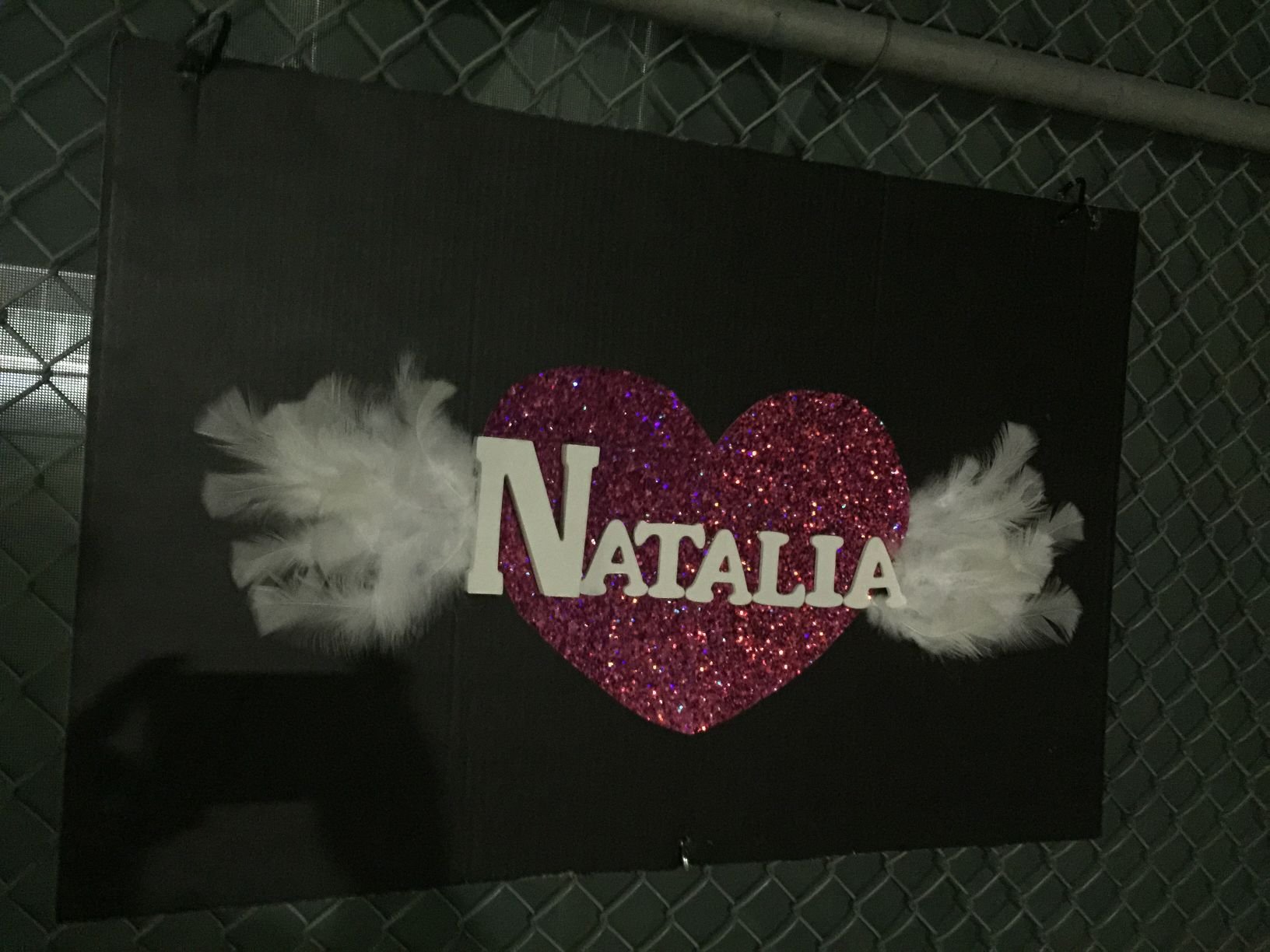Lance Cpl. Kurt Ledesma attributes his safe return to the United
States to the rallying support and prayers of people back home. A
picture of him in uniform hangs with those of at least a dozen
other service men and women being prayed for on a bulletin board at
South Valley Community Church.
Lance Cpl. Kurt Ledesma attributes his safe return to the United States to the rallying support and prayers of people back home. A picture of him in uniform hangs with those of at least a dozen other service men and women being prayed for on a bulletin board at South Valley Community Church.
“I felt that I’d be safe no matter what,” said Ledesma, whose entire unit of reservists returned unharmed. “I knew that everybody at church was praying for me.”
His unit, the Echo Company, 2nd Battalion, 23rd Marine Regiment, was one of the first to invade Iraq after President Bush launched “Operation Iraqi Freedom” on March 20, 2003.
“We thought all the active-duty guys would go before us,” Ledesma said. “I felt a little nervous. At the same time, I felt like I was doing something good for the country and feel kind of proud that I could be one of the first Marines.”
The soldiers were training in the mountains of Kuwait when orders came to pack up and ship out. They gathered their few belongings, boarded their camouflage 70-ton trucks and drove across the border into southern Iraq, heading straight for Baghdad.
The journey was fraught with hardships, including spatterings of combat and the scarcity of food and water. For a week, they had only the water in their canteens and camel packs and were eating one “Meal, Ready to Eat” a day because supply lines failed to keep pace. After four days, they were sharing one MRE between two hungry Marines each day.
On April 9, the battalion drove into Baghdad just as Iraqis toppled the statue of Saddam Hussein.
“We saw everybody in the streets jumping and celebrating,” he said. “People would run up to us and hug us, offer us Iraqi candy and Iraqi cigarettes.”
Ledesma spent nearly a month in Baghdad, patrolling the streets and clearing weapons from schools.
“We found schools where classrooms were filled with rocket-propelled grenades, from wall to wall filled with ammunition, AK-47s,” he said.
At the time, he never would’ve guessed the war in Iraq would linger for as long as it has, he said. Nor did he expect the recent wave of anti-American sentiment, as described by a friend of his in Iraq who tells him about some Iraqis giving soldiers dirty looks and writing anti-American graffiti on walls.
“We saw ‘We love George Bush’ written in spray paint,” Ledesma said.
He depended on the postal service to bridge the more than 7,000 miles between Baghdad and Gilroy. Mail was fairly reliable, arriving once a week.
Gilroy High School students wrote encouraging letters to him, and Gilroy grade-schoolers sent brightly painted banners. In return, the soldiers in his battalion took pictures of themselves holding the banners and sent them to the students.
“I got tons of letters,” he said. “It made me feel really good.”
He was able to use satellite phones to occasionally call home, but he could only talk for two minutes. It was enough time to say “Mom, Dad, I love you. I’m doing fine,” he said.
Ledesma grew up in and around Gilroy and several of his family members live here. He currently lives in San Jose, where he is attending San Jose City College.
However, his stay may be short-lived. He expects to be sent to Iraq again in January. His family already is upset, recalling how nervous and scared they were the first time.
“They always tell me you already did your time,” Ledesma said.
He looks at it differently.
“I see it as I’m doing my service for the country. I don’t feel right to hear about men my age fighting – they’re doing something, and I’m not over there.
“I live in America. I have all of these privileges.”
He saw Iraqis living in houses made of clay, drinking from and bathing in the same river water and eating meals of beans and rice.
“I can eat any food I want. It’s not like that over there,” he said. “Knowing that we are making their lives better, that they don’t have to live in fear. It’s not fair for me to just be here.”














